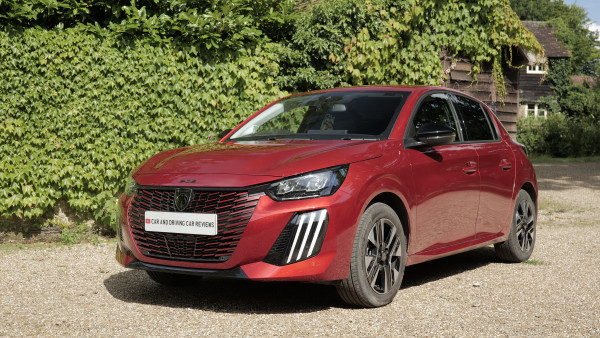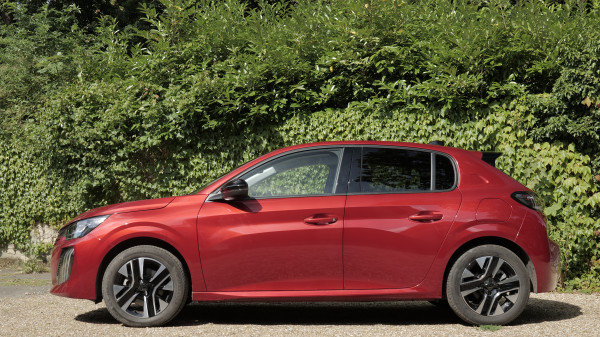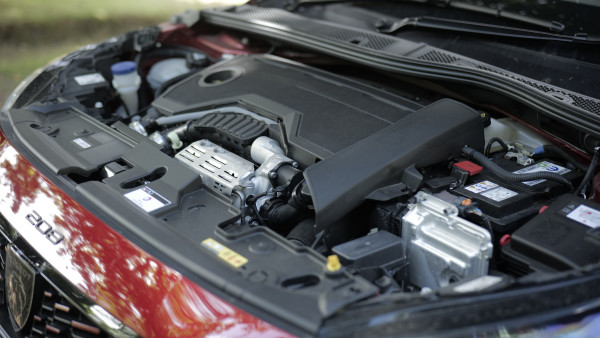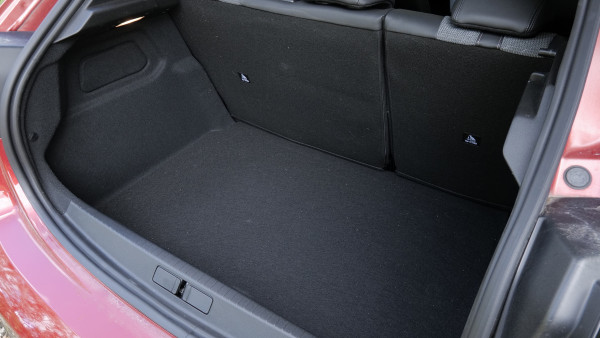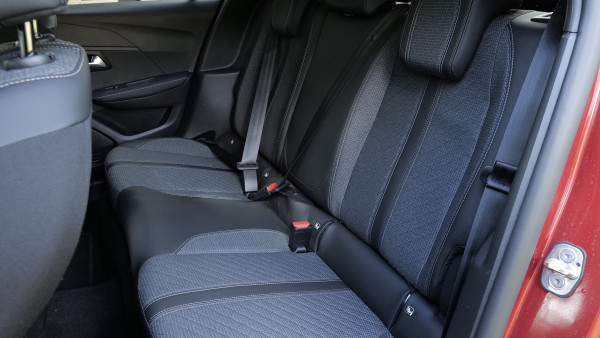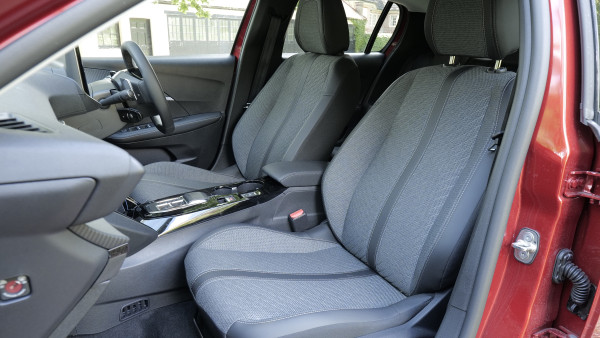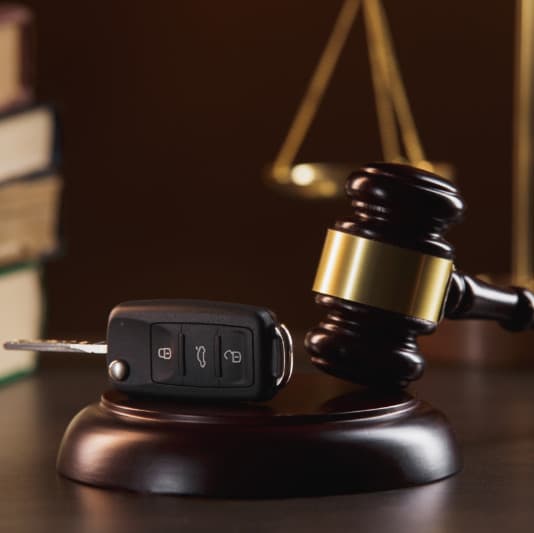The second generation version of Peugeot's 208 supermini has been rejuvenated in this updated form. Jonathan Crouch drives it.
Ten Second Review
With this second generation 208 supermini, here usefully improved, Peugeot has brought us a small car that really pushes the boundaries in supermini design. This 208 model's engineering may not quite be unique, but all the feel-good stuff really is - the pavement presence, the avant garde cabin. Plus that's been delivered with most of the practicality and efficiency you'll need from a small hatch. Here's a car that's made other brands in its sector really sit up and take notice. And, we think, quite a few buyers who'd never normally choose a Peugeot in this class are going to do the same.
Background
What exactly should a supermini be? Affordable? Economical? Practical? All these things are important of course, but if you're a car maker and that's all you create to sell in this segment, then you'd better be prepared to sell it very cheaply. Even in this humble category you see, buyers are now expecting more in terms of style, innovation and technology. In fact, they're expecting something more like this, the revitalised version of Peugeot's MK2 model 208.
The second generation 208 was first launched in 2019 and has since gone on to sell very well indeed; in fact, in 2022 it was Europe's best-selling car, de-throning the Volkswagen Golf after 15 years. Here, we're looking at the mid-term facelift applied to this car, announced in Summer 2023. There are new Hybrid engines, an upgrade for the EV version and smarter looks across the range. Plenty to talk about.
Driving Experience
The range kicks off with two familiar units, the un-electrified 75hp and 100hp 1.2-litre PureTech petrol powerplants from before, mated respectively to either 5-speed or 6-speed manual gearboxes. There's no longer a diesel option. Engine-wise, this big news with this facelifted model is that above these conventional engine choices, Peugeot has introduced two new Hybrid powertrains. These pair 100hp and 136hp versions of that same three cylinder 1.2-litre PureTech petrol engine with a 6-speed auto gearbox featuring an integrated 48V electric motor. Peugeot claims that this will allow the car to run in pure-electric mode for over 50% of the time in town.
If you don't want a Hybrid, then you'll be pleased to know that the The EV E-208 electric model has evolved too, gaining a new 156hp motor and a larger 51kWh battery offering a longer range of 248 miles. For most E-208s though, Peugeot is continuing to offer the old EV drivetrain, which sees a 50kWh battery matched to a 136hp electric motor, offering a range of up to 225 miles. Bear in mind that in both its forms, the E-208 is around 350kgs heavier than the ordinary version.
What about the driving experience across the 208 range? That hasn't changed much. What should a small French family car feel like to drive? Much like this, we think. Peugeot hasn't bothered trying to be sporty, firm and Germanic here, so the damping control is gentle and allows for a bit of chassis movement, but gets firmer when the body starts pitching about - as it will do if you start pushing this car into corners in the kind of way a typical owner never would. Predictably, the resulting confection doesn't give you the alert responses you'd get in some rivals but for the kind of urban driving that cars of this sort tend to do, we think it's pretty well judged. What it lacks in handling finesse is well compensated for by the languid and properly Gallic way the car handles speed humps and tarmac tears.
Design and Build
The changes made to the facelifted version of this second generation 208 aren't major, but they do bring the look of this supermini into line with latest versions of the 2008 and 508. There's a bolder version of the car's distinctive three-fang daytime running light signature. Along with a broader front grille. At the back, the tail lamp bar has been revised with a trio of red 'claws' extending the width of the tailgate. As before at the front, there's a large, intricately detailed grille with triple white LED headlights.
Inside, not too much has changed. There's a redesigned gearstick. And the big 10-inch centre screen that was previously reserved for top-spec models is now standardised across the range (though it gains a high-definition panel in pricier 'Allure' and 'GT' variants). As before, this 208 features Peugeot's 'i-Cockpit' design philosophy which sees you viewing the instrument screen over the top of the wheel rim, rather than conventionally through the wheel spokes. A continuing really nice cabin detail is the fold-down flap under the 'piano key'-style keys that decorate the centre console, concealing an area which can house your smartphone in several different ways while it charges - either inductively or via two charging points. And the area has an angled lip so that you can view your 'phone's screen while it's charging. At the back of this 208, you'll find decent passenger space for a car of this size. And Peugeot's keen to point out that the E-208 all-electric version has the same amount of rear seat legroom and boot space (311-litres) as the fossil-fuelled derivatives.
Market and Model
Expect prices to sit in the £21,000-£35,000 bracket, so much as before, with the E-208 EV starting from just under £28,000. As before, there are three main trim levels - 'Active', 'Allure' and 'GT'. A 10-inch central infotainment screen is now standard across the range with built-in 'Apple CarPlay'/'Android Auto' smartphone-mirroring. But combustion versions with base 'Active' trim still use an old-tech analogue instrument cluster with an incorporated 3.5-inch colour screen between the dials. 'Allure' and 'GT' models now come standard with the brand's 'Peugeot i-Connect' package, with the option to upgrade to 'i-Connect Advanced' which features live TomTom navigation and natural voice recognition. 'Allure'-spec gets you 16-inch 'Noma' diamond-cut alloy wheels, upgraded to 17-inch 'Yanaka' diamond-cut two-tone alloy rims on 'GT' versions. The 'GT' variants also get a 3D instrument screen, dynamic ambient lighting, 'Adamite Green' stitching across the dashboard and upholstery trimmed in black alcantara with 'Adamite Green' stitching.
Customers will choose between seven body colours, two of which are freshly added - 'Agueda Yellow' and 'Selenium Grey'. the other colours are 'Cumulus Grey', 'Nera Black', 'Bianca White', 'Elixir Red' and 'Vertigo Blue'. All 208 models feature gloss black door mirrors, irrespective of the colour chosen, and the 'GT' variants come as standard with gloss black wheel arches.
As you'd expect, a wide range of driver assistance and safety technologies are available this time round. Go for the Hybrid or e-208 models and the adaptive cruise control system you can have has the ability to make the car automatically stop and go in heavy traffic. You can have this system with a manual gearbox too, where it operates down to 18mph. Lane departure warning, auto parking and blind spot monitoring systems are available too.
Cost of Ownership
If you can't quite stretch to some kind of electrified 208, then you'll find that the 100hp PureTech manual model is rated at up to 58.2mpg on the WLTP combined cycle and is supposed to return an WLTP-rated CO2 reading of up to 109g/km, which is pretty good going for a car in this segment. The 75hp version has a CO2 reading of up to 55.2mpg and 114g/km.
You no longer have to stretch to an E-208 if you want a really frugal version of this supermini. Thanks to a battery that recharges during driving, the freshly introduced electrified technology now available in the Hybrid 100 and Hybrid 136 versions of this car offers extra torque at low revs and up to 15% lower fuel consumption. In urban driving, Peugeot claims that Hybrid 208 models will operate for more than 50% of the time in 100% zero-emission electric mode. They return around 65mpg and around 97g/km of CO2.
What about the EV version? Well Peugeot is continuing to offer it with the old 50kWh/136hp drivetrain offering 225 miles of range. But manyt customers will want to stretch to the longer range of the more up-to-date version, which comes with Peugeot's latest 115kW (156bhp) electric motor and a larger 51kWh battery capable of up to 248 miles between charges. A 7.4kW single-phase charger is supplied as standard on all E-208s, while a three-phase 11kW charger is available as an option. A 20-80% charge is estimated to take less than 25 minutes when using a 100kW rapid charger, extending to 4hrs and 40 minutes when using a 7.4kW charger.
Finally, you'll also need to know about warranties. In a class where Hyundai offers a standard five year warranty, Kia offers a 7 year package and Toyota can cover you for up to ten years, Peugeot, like most of its other rivals, persists with the usual three-year, 60,000 mile package - which can be extended up to five years and 100,000 miles at extra cost. A year's free breakdown cover is also provided, along with a six-year anti-corrosion guarantee. On an e-208, the battery is covered by a separate 8 year /100,000 mile warranty to 70% of its charge capacity.
Summary
So this second generation 208 has evolved - but not beyond recognition. In improving it, Peugeot has certainly tried to cover all the bases, while being very conscious that trying to please too many people too much of the time is a sure-fire recipe for failure - or at the very least, a distinctly compromised and forgettable end-result. 'It's OK to have 20% of people not liking this car', the company's MD used to say, 'as long as the other 80% love it'. In this case, we reckon his brand doesn't have too much to worry about.
There may be a few supermini buyers who don't like the cabin layout, want something better suited to cornering on its door handles or who might prefer the value proposition of a budget brand - but we're guessing they'll be in the minority. Most will recognise that in this improved 208, Peugeot has perfected for us the supermini it was always capable of. A smart small car choice - in more ways than one.
